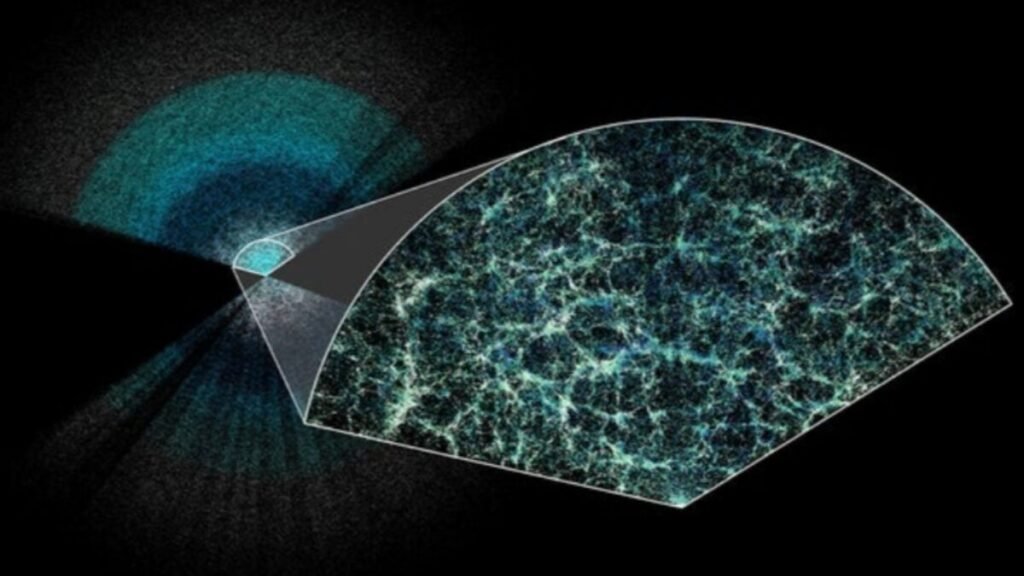“Physicist shakes up century of cosmology: What if 95% of the universe is just a mathematical illusion?”

The universe appears to be mainly made up of something that has yet to be directly observed: dark matter and dark energy. These two components play a significant role in modern cosmological theories, but their existence has not been confirmed through experimental evidence. However, a recent study suggests that dark matter and dark energy may not be real entities, but rather illusions created by the evolution of the cosmos.
The Mystery of the Invisible Universe
For decades, physicists have been puzzled by the fact that the visible matter in the universe – such as planets, stars, and interstellar gas – only makes up a small fraction of what is actually out there. Observations have shown that galaxies rotate at faster speeds than expected and that the universe is expanding at an accelerating rate. To account for these discrepancies, scientists introduced the concepts of dark matter and dark energy, which are thought to make up the majority of the universe’s mass and energy.
A Hypothesis That Changes Everything
In a recent publication in the journal “Galaxies,” a physicist proposed an intriguing idea. Instead of dark matter and dark energy being real entities, they could be illusions caused by gradual changes in the fundamental laws of physics as the universe ages. This hypothesis challenges the traditional notion of invisible entities driving cosmic phenomena.
The Role of a New Constant
The proposed model introduces a new parameter known as α (alpha), which measures how fundamental constants might change over time. This parameter is integrated into gravitational equations to mimic the effects typically attributed to dark matter and dark energy. On a cosmic scale, α behaves as a constant that can be adjusted based on observations, while in smaller regions, it fluctuates depending on the density of visible matter.
Could It Replace the ΛCDM Model?
The current standard model of cosmology, ΛCDM (Lambda Cold Dark Matter), has successfully explained numerous astronomical observations. However, the new hypothesis presents a different explanation for the observed phenomena, challenging the foundations of modern physics. The scientific community is carefully evaluating this proposal to determine if it can accurately reproduce the predictions of the ΛCDM model.
A Less Mysterious Universe… or Even More
If this alternative hypothesis is validated, it would revolutionize our understanding of the cosmos. The disappearance of dark matter and dark energy would significantly alter our perception of the universe. Yet, the notion that fundamental laws of the universe could change raises new questions about the nature of reality. Perhaps, instead of uncovering definitive answers, we are delving into deeper layers of cosmic complexity.






